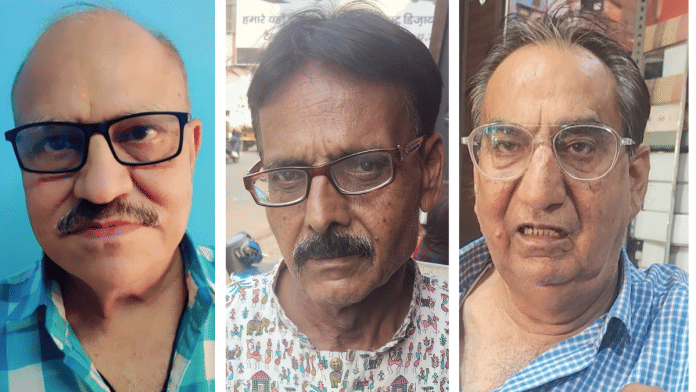Agra: Home is where the heart is. For about 100 families whose roots lie in Balochistan and living in Agra for two-three generations, it is a bitter-sweet part of their lives—a yearning for ancestral connection from the past while acknowledging the safety and warm embrace of the present.
These Hindu families bear the pangs of Partition, which hurt every time they hear news from the distant land and by the agony of displacement and the soul-stirring memories of separation even after seven decades.
Most of these families live in Balaji Puram area of Kamala Nagar, which is also called ‘Mini Balochistan’. A cultural center, Balochi Panchayat Dharamshala also known as Balochistan Bhawan, hosts festivals, social events and cultural programmes.
The Balochistan Bhawan is not just a building, but also a symbol of unity and culture for these families. Every year, on 13 April, a Baloch festival is celebrated here, in which Baloch tradition is lived through dance, music and food festivals. This is a medium to connect the new generation with its heritage.
Shravan Nagpal, a resident of Awas Vikas Colony, said that his grandfather lived in Sibi city of Balochistan. At the time of Partition, the Balochis were punished for not supporting Pakistan. This, he said, led to many arriving in India and settling in Agra, leaving behind business, property and prosperous lives.
“Now there is a wave of change, we are eagerly waiting for Balochistan’s independence,” Shravan says.
Lakshman Das Khatri, the head of the Baloch community in Agra, asserts that the decision by the elders to leave Balochistan was correct.
“Balochis are being oppressed in Pakistan. Taking up arms has become a compulsion. Now, the limit of patience has ended. When the news of an uprising in Balochistan comes, hope arises that there will be change. The people there are constantly struggling for their rights. Pakistan does not give them equality, this is the sad thing,“ Khatri says about the reports of “resistance” against the Pakistan Army.
“The Balochis who came to India are not well-off, as they had to leave everything that they had, and flee from Balochistan. Some of them settled in Indore and are barely making a living compared to the riches they had in Balochistan.”
The arrival of Baloch people precedes much before the Independence of India and Pakistan, one that dates back to the Mughal period.
“Emperor Akbar was a visionary ruler who invited people from all over the country to settle in Agra. In the same sequence, people from Balochistan were also settled here. The area where the Baloch people settled was called ‘Billochpura’,” Prof Sugam Anand, who heads the history department at B. R. Ambedkar University, told ThePrint.
“Although with time most of the Baloch families moved to other places, this area is still alive with Baloch culture and name,” he added.
The Billoch Pura railway station in Agra and its surrounding area are historically associated with the presence of Balochis.
The writings of Naseer Durrani, a historian from the Durrani dynasty in 1700s, are said to have records of the Balochis helping Akbar’s father Humayun in his fight against Afghan ruler Sher Shah Suri. Humayun, he wrote, rewarded them handsomely with land and property after the war ended.
The second wave of Balochis arrived in India when Pakistan began persecuting the citizens of Balochistan after 1947.
Ghanshyam Nagpal, a senior member of Baloch Bhawan who runs a small business, considers himself fortunate that his elders reached India at the right time. “If we had missed it, we would have also been facing persecution there today and probably been forced to convert to Islam,” he says.
The day when Balochistan gains independence will be like Diwali, he says.
“Baloch should get justice. Our people were treated as second class citizens in Pakistan; we got a sense of belonging and a safe life in India. The Balochis who were left behind were forced to accept Islam by Pakistan.”
The families have relatives in Balochistan but they do not try to contact them due to the sensitive situation between India and Pakistan, he adds.
Cultural outfit Hindustani Biradari vice-chairman Vishal Sharma draws a parallel between the exodus of Tibetans and Balochis.
“The current opportunity before India is similar to the one that came during the Tibet crisis in 1959. India should provide space to the exiled Baloch government by creating a special refugee force for Baloch refugees,” he says, and adds that this will increase diplomatic pressure on Pakistan, give strategic benefits to India and boost its image of a nation supporting human rights.
“These Baloch descendants still cherish the dream of independence of their native land. They want that one day they can go to their land again, bow their heads in the temple of Hinglaj Devi, and kiss the soil of their ancestors,” Sharma adds.
(Edited by Tony Rai)
Also Read: Curious case of Agra woman who, on paper, gave birth 25 times in 30 months






